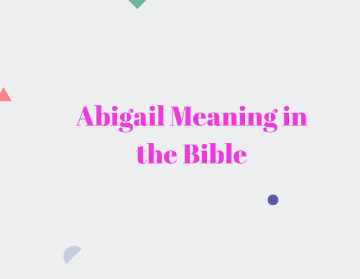Selecting a name for your baby is a deeply personal choice, often reflecting cultural heritage, personal preferences, or familial traditions. German origin names, with their rich historical and cultural significance, offer a range of options that are both distinctive and meaningful. Rooted in a language that has shaped Western thought and culture, German names bring a sense of tradition and strength to a child’s identity.
The Charm of German Names
German names are known for their strong, clear sounds and meaningful roots. They often carry historical, cultural, or familial significance, making them a great choice for parents who value tradition and depth. German names can range from classic to modern, each with its unique flair and resonance. Many German names also have corresponding meanings related to virtues, nature, and historical figures, providing an added layer of significance.
German Origin Baby Boy Names
- Adalbert - Of German origin, meaning "noble bright."
- Adolph - Of German origin, meaning "noble wolf."
- Albert - Of German origin, meaning "noble bright" or "shining."
- Alexander - Of Greek origin, meaning "defender of the people."
- Andreas - Of Greek origin, meaning "manly" or "brave."
- Anton - Of Latin origin, meaning "priceless" or "of inestimable worth."
- Armin - Of Germanic origin, meaning "whole" or "universal."
- August - Of Latin origin, meaning "great" or "venerable."
- Benjamin - Of Hebrew origin, meaning "son of the right hand."
- Bernd - Of German origin, meaning "brave as a bear."
- Bernard - Of Germanic origin, meaning "brave as a bear."
- Bruno - Of Germanic origin, meaning "brown" or "shield."
- Carl - Of Germanic origin, meaning "free man" or "man."
- Christian - Of Greek origin, meaning "follower of Christ."
- Christoph - Of Greek origin, meaning "bearer of Christ."
- Claus - German form of "Nicholas," meaning "victory of the people."
- Conrad - Of Germanic origin, meaning "bold counsel."
- Dieter - Of German origin, meaning "warrior of the people."
- Dirk - Of Dutch origin, meaning "ruler of the people."
- Edmund - Of Old English origin, meaning "wealthy protector."
- Eduard - Of Germanic origin, meaning "guardian of prosperity."
- Emil - Of Latin origin, meaning "rival" or "eager."
- Erich - Of Germanic origin, meaning "eternal ruler."
- Ernst - Of German origin, meaning "serious" or "resolute."
- Ferdinand - Of Germanic origin, meaning "bold voyager."
- Franz - Of German origin, meaning "free man."
- Friedrich - Of German origin, meaning "peaceful ruler."
- Gabriel - Of Hebrew origin, meaning "God is my strength."
- Georg - German form of "George," meaning "farmer" or "earthworker."
- Günter - Of Germanic origin, meaning "battle warrior."
- Hans - German form of "John," meaning "God is gracious."
- Harald - Of Old Norse origin, meaning "ruler of the army."
- Heinrich - Of German origin, meaning "home ruler."
- Helmut - Of Germanic origin, meaning "helmet" or "protector."
- Hermann - Of Germanic origin, meaning "soldier" or "warrior."
- Hugo - Of Germanic origin, meaning "mind" or "intellect."
- Jakob - German form of "Jacob," meaning "supplanter."
- Jens - Danish form of "John," meaning "God is gracious."
- Joachim - Of Hebrew origin, meaning "raised by God."
- Johannes - Of Greek origin, meaning "God is gracious."
- Josef - German form of "Joseph," meaning "God will increase."
- Julian - Of Latin origin, meaning "youthful" or "downy."
- Karl - German form of "Charles," meaning "free man."
- Klaus - German form of "Nicholas," meaning "victory of the people."
- Kurt - Of German origin, meaning "courteous" or "polite."
- Leo - Of Latin origin, meaning "lion."
- Leopold - Of Germanic origin, meaning "bold leader."
- Lukas - German form of "Lucas," meaning "light-giving" or "illuminated."
- Manfred - Of Germanic origin, meaning "man of peace."
- Marcus - Of Latin origin, meaning "male, manly" or "warlike."
- Martin - Of Latin origin, meaning "of Mars" or "warrior."
- Matthias - Of Greek origin, meaning "gift of God."
- Max - Of Latin origin, meaning "greatest."
- Maximilian - Of Latin origin, meaning "the greatest."
- Michael - Of Hebrew origin, meaning "who is like God?"
- Moritz - German form of "Maurice," meaning "dark-skinned" or "Moorish."
- Nikolaus - German form of "Nicholas," meaning "victory of the people."
- Norbert - Of Germanic origin, meaning "northern bright."
- Oskar - Of Old Norse origin, meaning "god spear" or "divine spear."
- Otto - Of Germanic origin, meaning "wealth" or "fortune."
- Paul - Of Latin origin, meaning "small" or "humble."
- Peter - Of Greek origin, meaning "stone" or "rock."
- Philipp - Of Greek origin, meaning "lover of horses."
- Ralf - Of Germanic origin, meaning "wolf counsel."
- Richard - Of Germanic origin, meaning "brave ruler."
- Robert - Of Germanic origin, meaning "bright fame."
- Roland - Of Germanic origin, meaning "famous land."
- Rudolf - Of Germanic origin, meaning "famous wolf."
- Samuel - Of Hebrew origin, meaning "heard by God."
- Stefan - Of Greek origin, meaning "crown" or "garland."
- Steffen - German form of "Stephen," meaning "crown" or "garland."
- Thomas - Of Aramaic origin, meaning "twin."
- Tobias - Of Hebrew origin, meaning "God is good."
- Uwe - Of German origin, meaning "ancestor."
- Viktor - Of Latin origin, meaning "victor" or "conqueror."
- Walter - Of Germanic origin, meaning "ruler of the army."
- Werner - Of Germanic origin, meaning "defending warrior."
- Wilhelm - Of Germanic origin, meaning "resolute protector."
- Willi - Diminutive of "Wilhelm," meaning "resolute protector."
- Wolfgang - Of Germanic origin, meaning "wolf path."
- Arno - Of Germanic origin, meaning "eagle."
- Berthold - Of Germanic origin, meaning "bright ruler."
- Detlev - Of Germanic origin, meaning "people's legacy."
- Eckhard - Of Germanic origin, meaning "edge" or "sword."
- Erwin - Of Germanic origin, meaning "friend of the army."
- Gerhard - Of Germanic origin, meaning "brave with the spear."
- Hansjörg - Of German origin, meaning "God is gracious" and "farm."
- Hartmut - Of Germanic origin, meaning "brave spirit."
- Jürgen - Of German origin, meaning "farmer" or "earthworker."
- Klaus-Dieter - Combined name of "Klaus," meaning "victory of the people," and "Dieter," meaning "warrior of the people."
- Lorenz - German form of "Lawrence," meaning "laurel-crowned."
- Maxim - Of Latin origin, meaning "greatest."
- Siegfried - Of Germanic origin, meaning "victory peace."
- Volker - Of Germanic origin, meaning "people's guard."
- Alaric - Of Germanic origin, meaning "ruler of all."
- Dietrich - Of German origin, meaning "people's ruler."
- Gottfried - Of Germanic origin, meaning "God's peace."
- Helmut - Of Germanic origin, meaning "helmet" or "protector."
- Rainer - Of Germanic origin, meaning "wise army."
- Wilfried - Of Germanic origin, meaning "desires peace."
German Origin Baby Girl Names
- Adelheid - Of German origin, meaning "noble kind" or "nobility."
- Agnes - Of Greek origin, meaning "pure" or "holy."
- Alma - Of Latin origin, meaning "nurturing" or "soul."
- Annemarie - Of German origin, a blend of Anna ("grace") and Marie ("bitter" or "beloved").
- Anneliese - Of German origin, a combination of Anna ("grace") and Liese ("God is my oath").
- Astrid - Of Scandinavian origin, meaning "divine strength" or "godly strength."
- Beatrice - Of Latin origin, meaning "bringer of joy" or "blessed."
- Bertha - Of Germanic origin, meaning "bright" or "glorious."
- Brunhilde - Of Germanic origin, meaning "armed for battle" or "bearer of armor."
- Clara - Of Latin origin, meaning "clear" or "bright."
- Claudia - Of Latin origin, meaning "lame" or "enclosure."
- Cornelia - Of Latin origin, meaning "horn" or "horned."
- Dagmar - Of Old Norse origin, meaning "day maid" or "maid of the day."
- Dora - Of Greek origin, meaning "gift" or "gifted."
- Edith - Of Old English origin, meaning "rich in war" or "prosperous in battle."
- Eleonore - Of Greek origin, meaning "shining light" or "sun ray."
- Elsa - Of German origin, meaning "noble" or "godly."
- Emilie - Of Latin origin, meaning "rival" or "eager."
- Erika - Of German origin, meaning "eternal ruler" or "ever-powerful."
- Eva - Of Hebrew origin, meaning "life" or "living one."
- Felicitas - Of Latin origin, meaning "happiness" or "fortunate."
- Franziska - Of Latin origin, meaning "free" or "from France."
- Frieda - Of German origin, meaning "peace" or "peaceful ruler."
- Gertrud - Of Germanic origin, meaning "spear of strength" or "strength of the spear."
- Greta - Of German origin, meaning "pearl" or "little pearl."
- Gisela - Of Germanic origin, meaning "pledge" or "hostage."
- Hannelore - Of German origin, a combination of Hannah ("grace") and Eleonore ("shining light").
- Hanna - Of Hebrew origin, meaning "grace."
- Hedwig - Of Germanic origin, meaning "battle" or "struggle."
- Helga - Of Scandinavian origin, meaning "holy" or "blessed."
- Henriette - Of French origin, meaning "ruler of the home."
- Hildegard - Of Germanic origin, meaning "battle enclosure" or "guardian of the battle."
- Ilse - Of German origin, meaning "pledged to God" or "God's promise."
- Ingrid - Of Scandinavian origin, meaning "beautiful" or "beloved."
- Irma - Of German origin, meaning "whole" or "universal."
- Johanna - Of Hebrew origin, meaning "God is gracious."
- Julia - Of Latin origin, meaning "youthful" or "downy."
- Karin - Of Scandinavian origin, meaning "pure" or "chaste."
- Karla - Of German origin, meaning "free man" or "strong."
- Katharina - Of Greek origin, meaning "pure" or "unsullied."
- Klara - Of Latin origin, meaning "bright" or "clear."
- Leni - Of German origin, a short form of Helena, meaning "bright, shining light."
- Lena - Of Greek origin, meaning "torch" or "light."
- Lorelei - Of German origin, meaning "murmuring rock" or "luring rock."
- Louise - Of French origin, meaning "renowned warrior" or "famous in battle."
- Luise - Of German origin, a variant of Louise, meaning "renowned warrior."
- Magdalena - Of Greek origin, meaning "of Magdala" or "tower."
- Mariele - Of German origin, a combination of Maria ("sea of bitterness") and Eleonore ("shining light").
- Maria - Of Hebrew origin, meaning "sea of bitterness" or "beloved."
- Marianne - Of French origin, meaning "bitter" or "wished for child."
- Marie - Of French origin, meaning "bitter" or "beloved."
- Martha - Of Aramaic origin, meaning "lady" or "mistress."
- Marta - Of Aramaic origin, meaning "lady" or "mistress."
- Mathilde - Of Germanic origin, meaning "mighty in battle" or "strength in battle."
- Meta - Of Greek origin, meaning "pearl" or "self."
- Minna - Of German origin, meaning "strong-willed" or "resolute."
- Monika - Of Latin origin, meaning "advisor" or "counselor."
- Nora - Of Latin origin, meaning "honor" or "light."
- Petra - Of Greek origin, meaning "stone" or "rock."
- Renate - Of Latin origin, meaning "reborn" or "renewed."
- Rosa - Of Latin origin, meaning "rose" or "flower."
- Rosalie - Of Latin origin, meaning "rose" or "little rose."
- Ruth - Of Hebrew origin, meaning "friend" or "companion."
- Sabine - Of Latin origin, meaning "Sabine woman" or "from the Sabine tribe."
- Sophie - Of Greek origin, meaning "wisdom."
- Steffi - Of German origin, a diminutive of Stephanie, meaning "crown" or "garland."
- Stefanie - Of Greek origin, meaning "crown" or "garland."
- Susanne - Of Hebrew origin, meaning "lily" or "rose."
- Sylvia - Of Latin origin, meaning "wood" or "forest."
- Thea - Of Greek origin, meaning "goddess" or "divine."
- Therese - Of Greek origin, meaning "harvester" or "summer."
- Ursula - Of Latin origin, meaning "little bear."
- Verena - Of Latin origin, meaning "true" or "genuine."
- Veronika - Of Greek origin, meaning "bringer of victory."
- Viola - Of Latin origin, meaning "violet" or "flower."
- Waltraud - Of Germanic origin, meaning "powerful ruler" or "strength in battle."
- Wanda - Of Slavic origin, meaning "wanderer" or "shepherdess."
- Yvonne - Of French origin, meaning "yew tree" or "archer."
- Brigitte - Of Irish origin, meaning "strength" or "exalted one."
- Elke - Of German origin, meaning "noble" or "of noble kin."
- Erna - Of German origin, meaning "serious" or "earnest."
- Hilde - Of Germanic origin, meaning "battle" or "combat."
- Lore - Of German origin, meaning "luring rock" or "murmuring."
- Margarete - Of Greek origin, meaning "pearl."
- Susana - Of Hebrew origin, meaning "lily" or "rose."
- Traudl - Of German origin, meaning "strong" or "powerful."
- Uta - Of Germanic origin, meaning "wealth" or "rich."
- Wilhelmine - Of German origin, meaning "resolute protector" or "will and helmet."
- Annette - Of French origin, meaning "grace" or "favor."
- Birgit - Of Scandinavian origin, meaning "exalted one" or "strong."
- Eva-Maria - Of Hebrew and Latin origin, meaning "life" and "bitter" or "beloved."
- Gretchen - Of German origin, meaning "little pearl."
- Hilda - Of Germanic origin, meaning "battle" or "struggle."
- Johanne - Of Hebrew origin, meaning "God is gracious."
- Karoline - Of German origin, meaning "free man" or "strong."
- Magda - Of Greek origin, meaning "great" or "magnificent."
- Rosina - Of Latin origin, meaning "little rose."
- Elfriede - Of German origin, meaning "elf strength" or "supernatural strength."
- Gerda - Of Scandinavian origin, meaning "enclosure" or "protected."
- Senta - Of German origin, meaning "sensible" or "wise."
The Timelessness of German Names
German names have a distinctive charm that combines historical significance with modern appeal. They are often associated with virtues, historical figures, and cultural heritage, providing a deep sense of identity and meaning. Whether you are drawn to the strength of names like Friedrich and Wilhelmina or the elegance of names like Klara and Greta, German-origin names offer a timeless quality that will serve your child well throughout their life.
These names are not only beautiful and meaningful but also carry with them a sense of tradition and pride. By choosing a German name, you are connecting your child to a rich cultural heritage that values strength, clarity, and elegance.
Conclusion
German-origin baby names offer a wealth of options for parents looking for names that are both meaningful and elegant. From the classic and regal sounds of Maximilian and Wilhelmina to the simple yet profound names like Klara and Frieda, German names provide a rich tapestry of choices that reflect tradition and cultural depth. These names are more than just labels; they are a connection to a heritage that values strength, beauty, and historical significance. By selecting a German name, you are giving your child a name that is both distinctive and timeless, ensuring that it will make a lasting impression.






